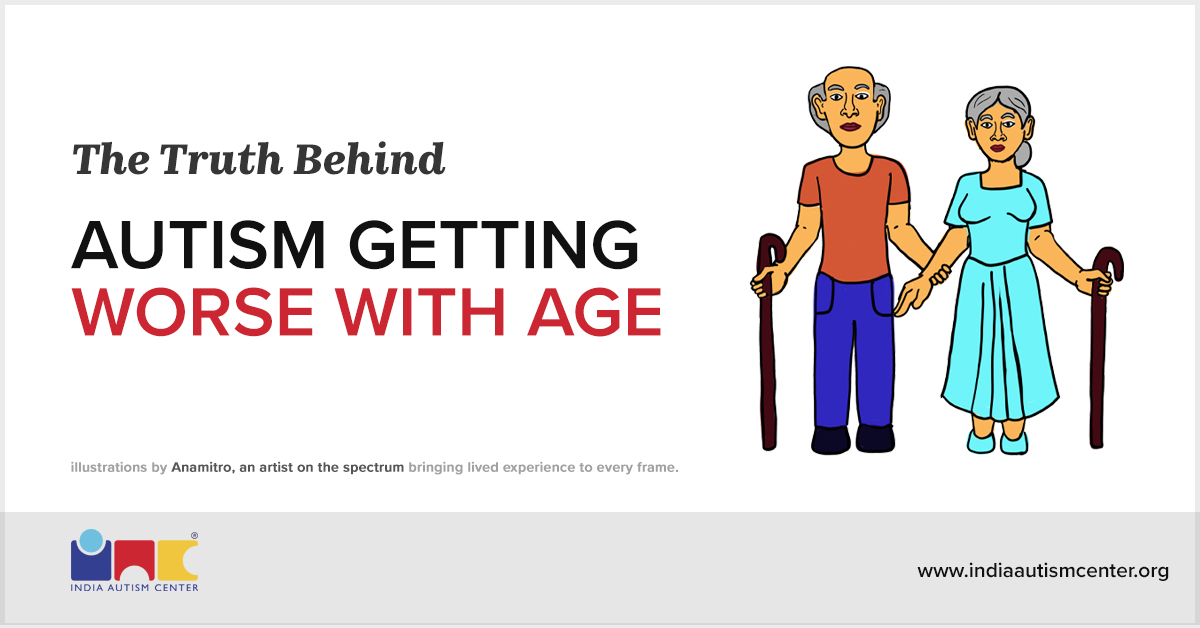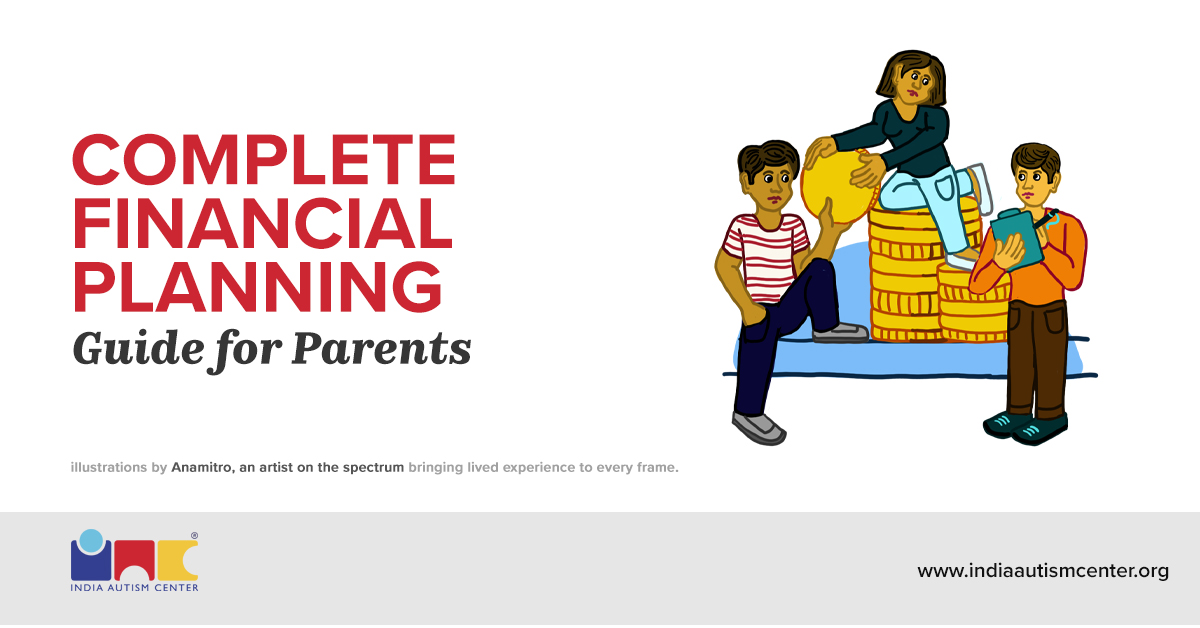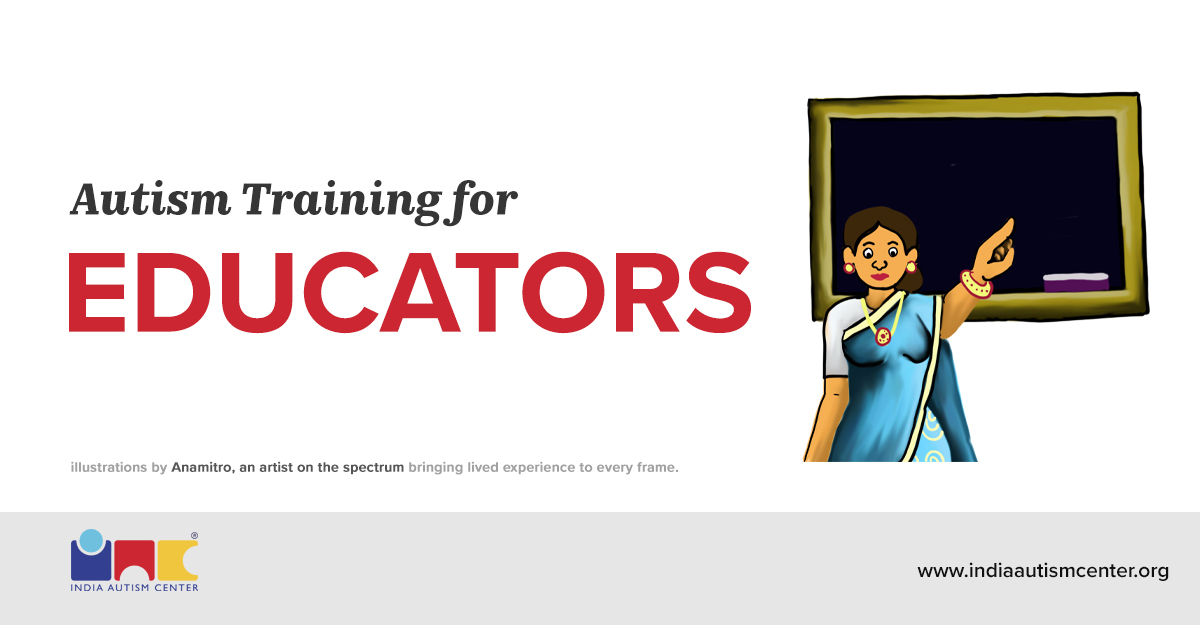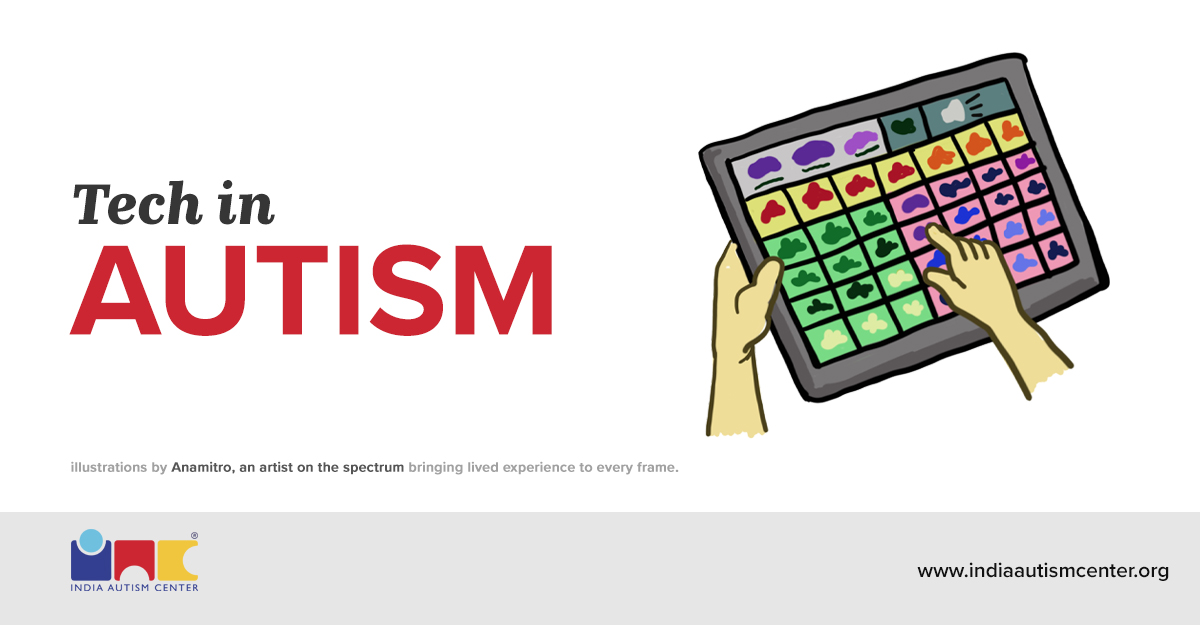Autism looks different at every age. Routines that worked in childhood may no longer hold up against the demands of school, work, or relationships. Suddenly, what once felt manageable can feel overwhelming.
This leaves many wondering: ‘Is autism getting worse with age?’
Here’s the truth. Research shows autism itself doesn’t worsen over time. However, new environments and increasing pressures can make the challenges associated with autism appear more intense.
In this article, you’ll learn what actually happens as autistic individuals grow older, what makes autism seem worse, and what you can do to adapt.
So, let’s get right into it.
Is Your Autism Getting Worse with Age?
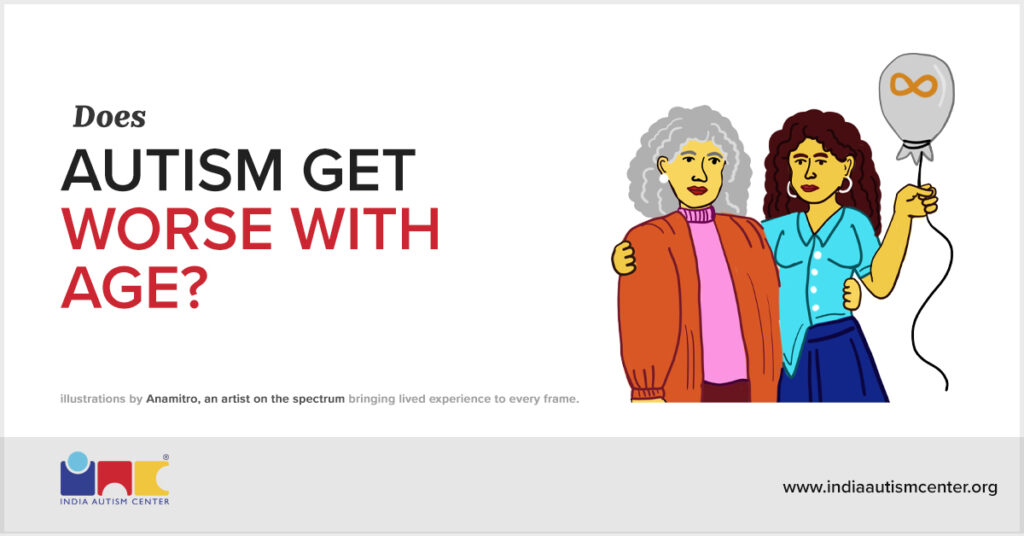
The short answer is no. Current scientific evidence suggests that the symptoms of autism spectrum disorder (ASD) typically do not worsen with age.
In fact, a recent large-scale review found that the core symptoms of ASD either remain stable or improve as individuals get older.
So why does it feel like autism is getting worse with age?
Because the context changes. Expectations grow. Environments become less accommodating. The pressure to fit in rises.
This brings us to a more practical question: what makes autism seem worse at different life stages?
Let’s break it down.
Does Autism Get Worse After Age 3?
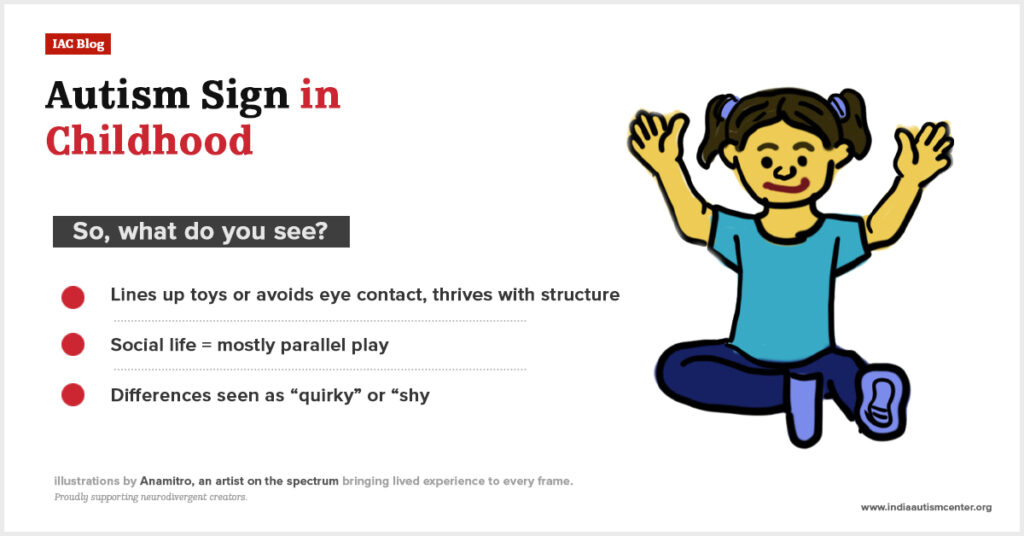
In childhood, there’s often more space to be different.
Parents, teachers, and caregivers often step in with visual schedules, predictable routines, and even quiet corners in classrooms.
So, what do we see?
- A child who lines up toys or avoids eye contact, but thrives with structure
- Social life is mostly limited to parallel play, so differences in communication are less obvious
- Behaviors may be written off as quirky, shy, or just particular
Does Autism Get Worse in Teenage Years? (Ages 13–19)
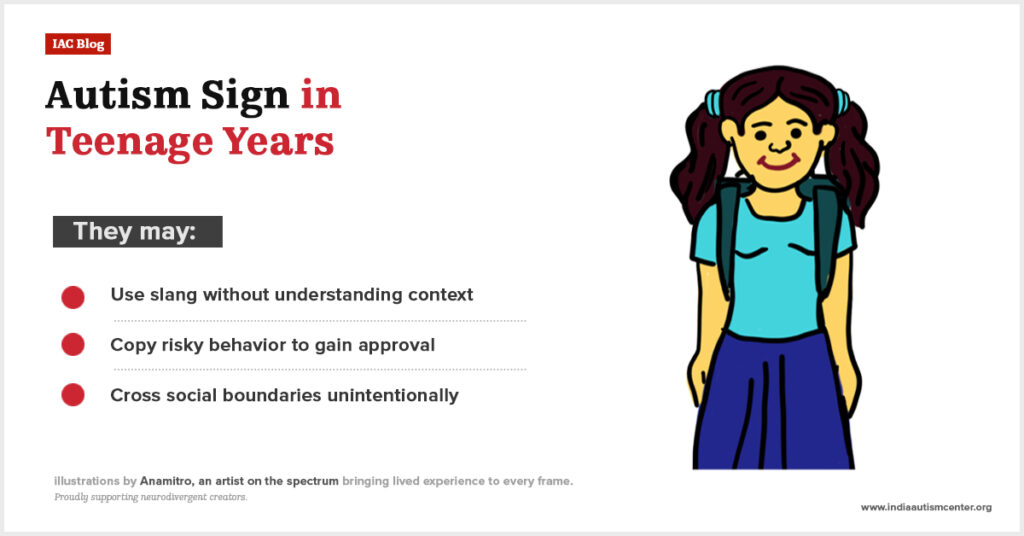
This is when the gap between autistic and non-autistic peers widens most sharply.
Social life transforms into an unspoken game of codes, sarcasm, shifting alliances, and hidden rules. For an autistic teen trying to keep up in real time, the load is massive.
Common social struggles include:
- Using slang without grasping the context
- Copying risky behavior to gain approval
- Crossing boundaries without realizing it
Additionally, several issues tend to surface more prominently during these years:
- Anxiety ramps up: Meta-analyses estimate that about 40% of autistic youth meet the criteria for at least one anxiety disorder.
- Masking takes its toll: Research shows that masking autistic traits, especially during teenage years, can lead to elevated stress, exhaustion, loss of identity, and depression.
Does Autism Get Worse in Adulthood? (Ages 20s and Beyond)
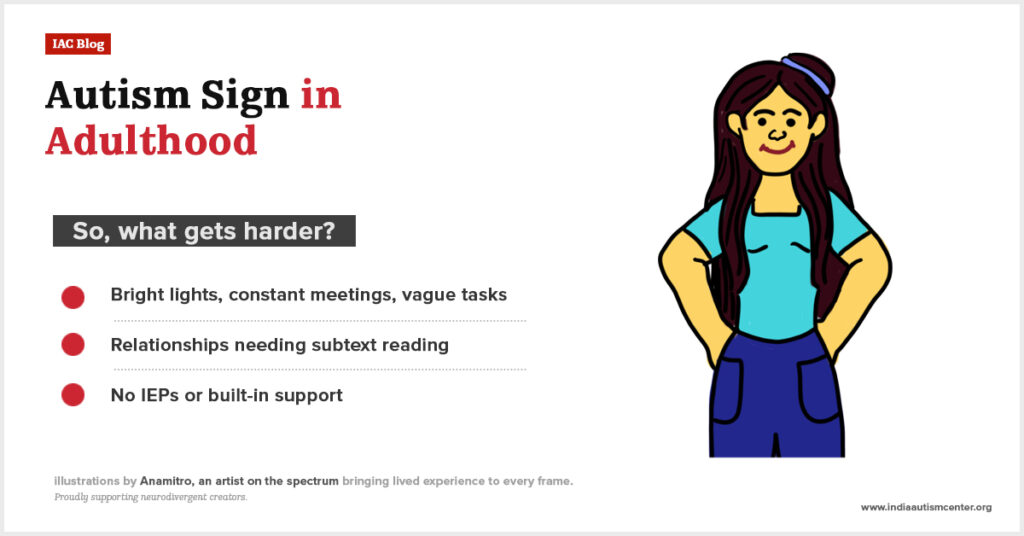
For many autistic adults, this stage is the hardest.
Why? Because support disappeared while demands multiplied.
Challenges typically include:
- Workplaces with open office noise, fluorescent lights, vague instructions, and constant meetings
- Relationships that rely on unspoken rules, emotional reciprocity, and navigating gray areas
- The end of formal supports like therapy hours and built-in accommodations
- Years of masking often lead to deep exhaustion, reduced functioning, and sometimes regression in coping strategies
- The weight of social and sensory expectations compounds, leading to burnout that can look like a decline
Ultimately, what makes autism worse isn’t aging itself, but the cumulative effect of unmet needs, relentless masking, and environments that fail to accommodate differences
Does High Functioning Autism Get Worse with Age?
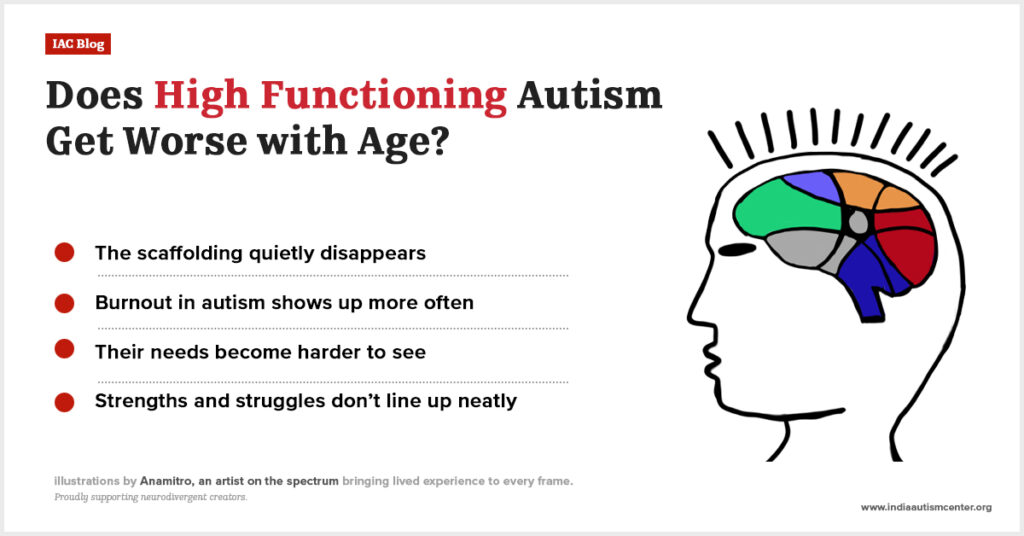
The answer to this question is not straightforward.
Primarily, because the term ‘high-functioning’ can be misleading. It implies that an individual with autism is coping well simply because they can speak fluently or maintain a job.
In reality, many of these individuals are working twice as hard behind the scenes to manage challenges such as sensory overload, social exhaustion, and difficulties with executive functioning, which do not diminish over time.
Here’s what typically happens as these high-functioning autistic individuals grow older:
Supports Fade Away
In childhood, structured routines, visual schedules, therapy, and understanding teachers often provide support.
However, as adults, these resources quietly disappear.
Suddenly, there is an expectation to manage workplaces, relationships, and emotional regulation without accommodations, simply because they appear capable.
Burnout Becomes More Common
Masking strategies, such as rehearsing social scripts and hiding natural responses, can be useful in the short term, but they come at a significant cost.
Over time, these strategies can lead to burnout. It manifests as chronic fatigue, increased anxiety, low mood, skill loss, and even physical health issues.
Struggles Remain Invisible
When an autistic individual is articulate or academically successful, their challenges often go unnoticed.
Employers, family, and peers may assume they are thriving when in reality, they are drained from continuously having to self-regulate.
Uneven Skill Profiles Become More Obvious
Strengths and challenges do not always occur together.
For instance, someone may excel in professional presentations but neglect basic self-care, such as eating. They might manage small talk at a party, yet struggle to cope with sudden changes in their routine.
This inconsistency is common among individuals with autism spectrum disorder. However, the label ‘high-functioning’ oversimplifies their experiences, ultimately leaving them without the support they need.
Aging Well on the Autism Spectrum
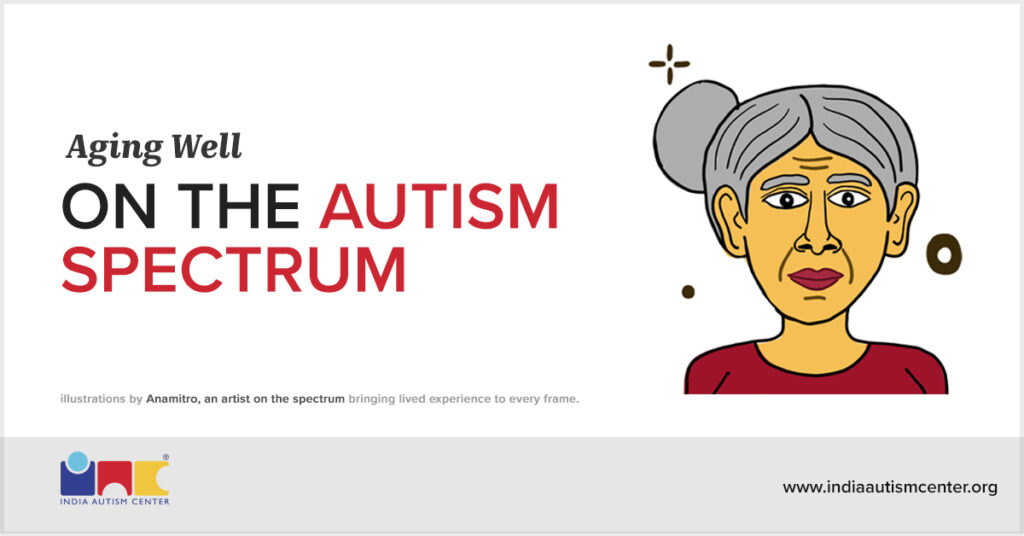
For neurotypical individuals, aging well typically involves remaining physically active, mentally sharp, and socially engaged as they grow older.
But for autistic individuals, the situation is more complex.
For them, aging well means maintaining visibility within systems that were not designed with their needs in mind.
So, let’s dig deeper into this first.
The Problem with the “Successful Aging” Playbook
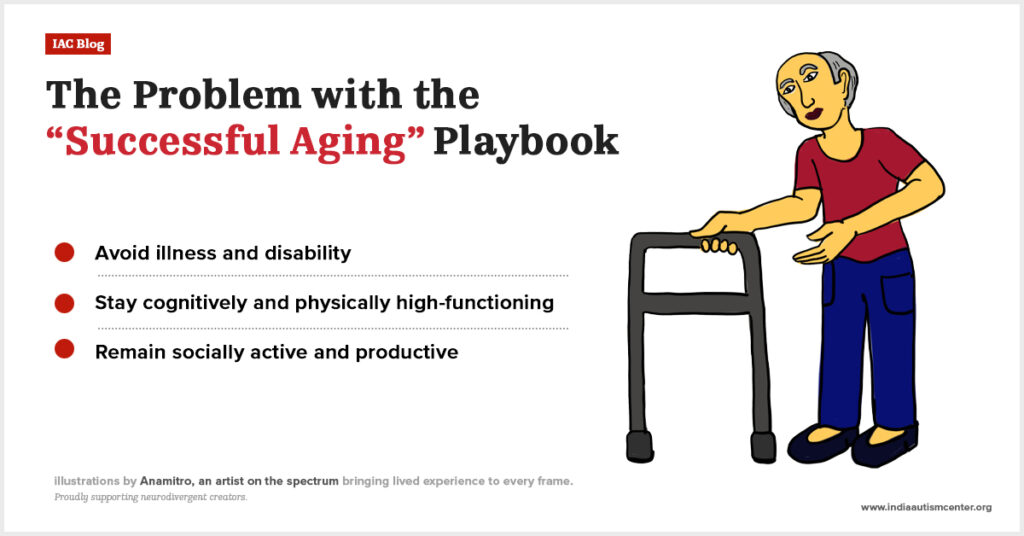
Since the 1980s, aging research has leaned on a narrow formula:
- Avoid illness and disability
- Stay cognitively and physically high-functioning
- Remain socially active and productive
But here’s the catch. If you live with a neurodevelopmental condition like autism, you’re already locked out of the ideal.
Autistic individuals experience and navigate the world differently. Routines, sensory accommodations, or non-traditional communication styles are not deficits. They’re reality.
Judged against the conventional model, though, this reality gets erased.
What Aging Well with Autism Really Means
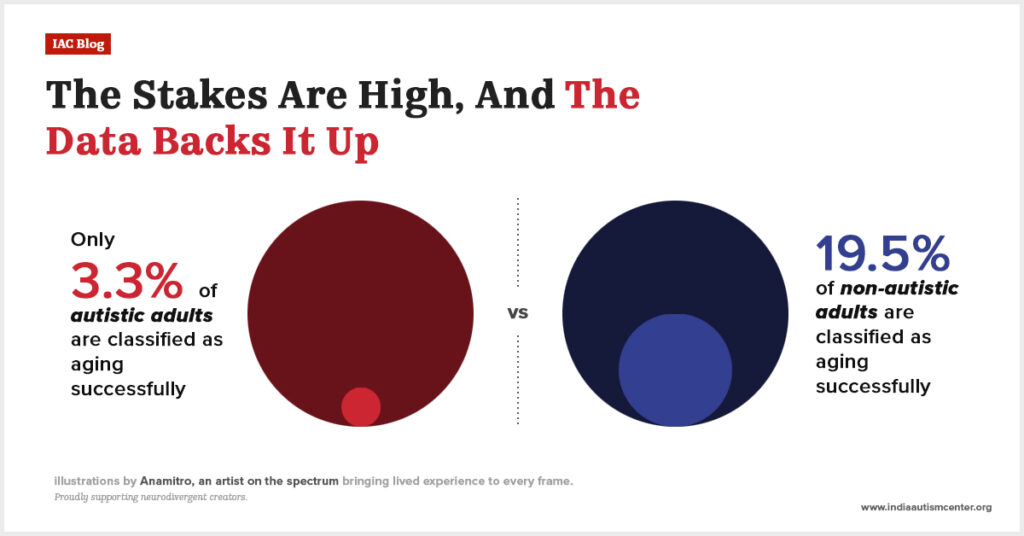
A recent study found that only 3.3% of autistic adults were considered to be aging successfully under the traditional model.
But that number was less about autistic individuals and more about how outdated our definitions were.
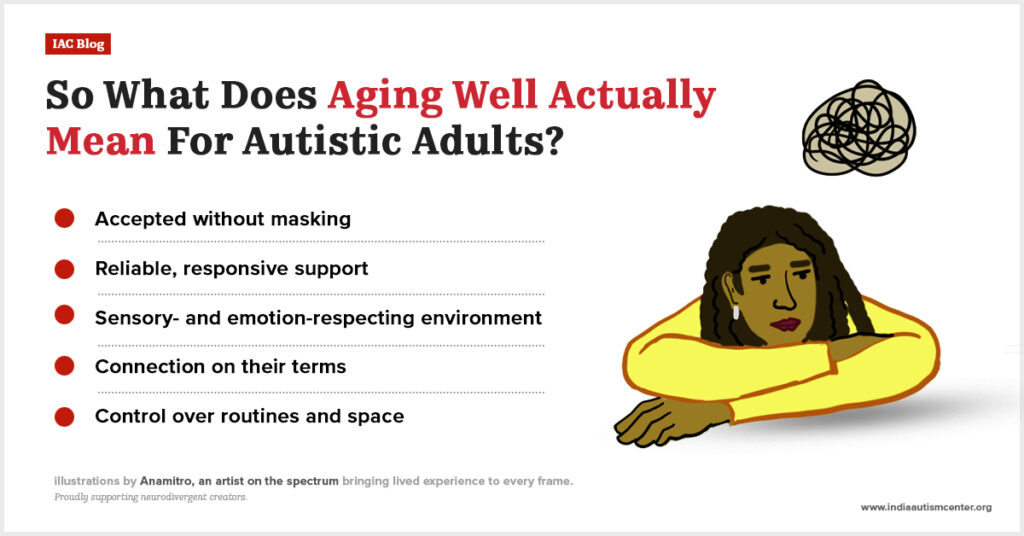
So, a 2017 Australian study decided to flip the script. It asked autistic adults and their carers what aging well looked like to them. No filters. No checklists. Just lived experience.
Here’s what emerged:
- Being accepted as they are, without pressure to mask
- Having responsive, consistent support
- Living in sensory-considerate environments
- Staying socially connected, but on their terms
- Retaining control over routines, space, and choices
From Independence to Interdependence
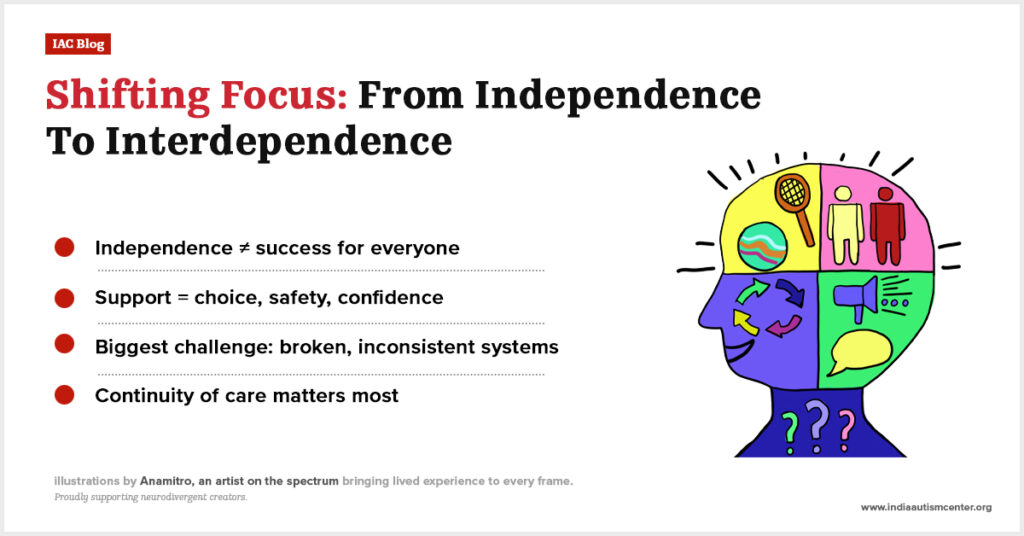
For autistic adults, healthy aging doesn’t mean doing everything alone. It means having the right kind of support without the need to justify why it’s necessary.
Instead of viewing support as a sign of failure, what if we considered it a valuable resource? One that provides choices, boosts confidence, and ensures safety throughout life.
Continuity of care is also crucial. Caregivers often express how exhausting it can be to navigate fragmented systems, especially as autistic adults age out of services or have to explain their needs to new providers repeatedly.
What sustains well-being isn’t just access; it’s consistency.
Redefining Aging Well Under the Spectrum
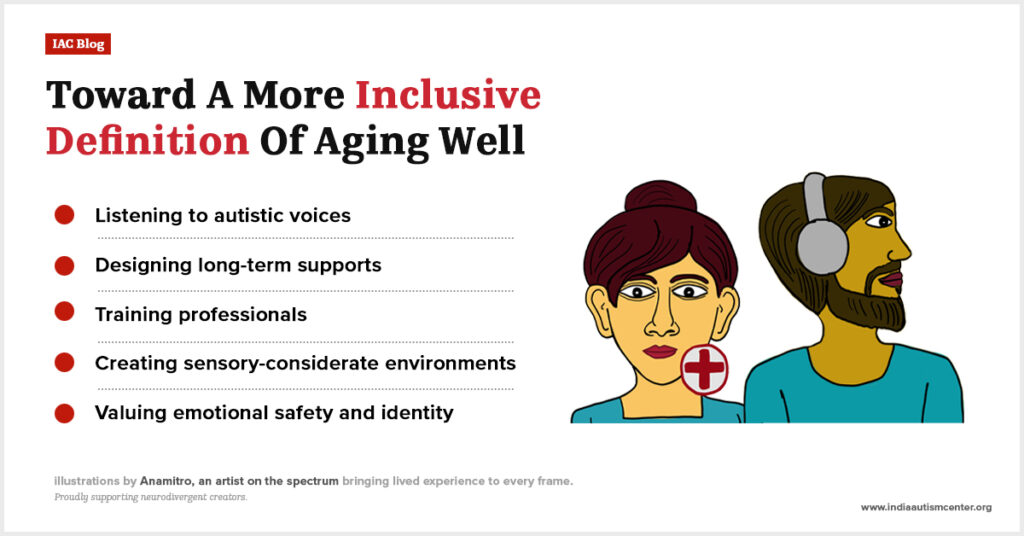
If we want autistic adults to age well, we need to rewrite the rules.
That starts with:
- Listening to autistic voices about what well-being means
- Building long-term supports that grow with age
- Training professionals to recognize autism across the lifespan
- Designing housing, healthcare, and communities with sensory needs in mind
- Valuing emotional safety and identity alongside productivity
Aging well should not be limited to those who conform to a narrow, neurotypical standard. Everyone deserves this opportunity. Our aim should not be to deny differences, but to adapt to them.
Parting Words: Support and Care for Autistic Individuals
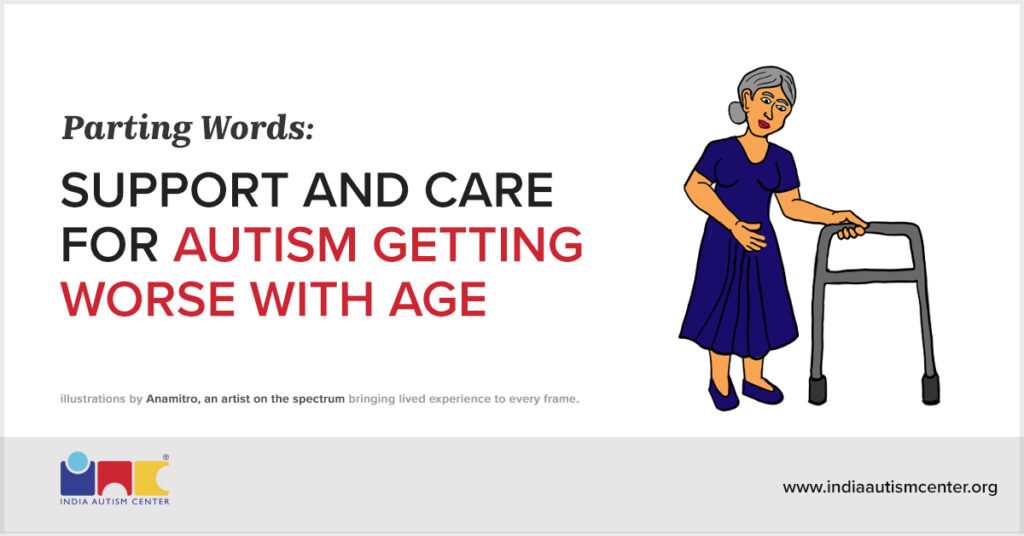
So, no, autism spectrum disorder itself doesn’t worsen with age.
But unmet needs do. And the cost of managing alone can quietly build until it surfaces as burnout, isolation, or health decline.
That’s why the real question isn’t “Does autism get worse with age?” but rather: “Are we providing the right kind of support as life changes?”
The goal isn’t crisis response. It’s steady, evolving care. That might mean a therapist who understands masking and burnout, or daily routines that support executive function.
Planning is key. Most importantly, support must be consistent. It must also be anchored in continuity and trust, not repeated cycles of re-explaining. Autistic adults don’t outgrow their needs. Their care simply needs to grow with them.
And if you’re exploring long-term care, feel free to contact us.
Frequently Asked Questions
Can autism worsen with age if untreated?
Autism does not progress or deteriorate, even if untreated. Without support, though, individuals may face burnout, isolation, or declining mental health, which can make daily challenges more intense and harder to manage.
Do autism symptoms get worse with age?
Autism symptoms remain stable, but life stages such as adolescence, employment, or aging can intensify how those symptoms appear. Support systems, social expectations, and co-occurring conditions play a large role in how symptoms are experienced.
Does autism get better with age?
While autism is lifelong, communication, self-regulation, and social skills often improve as autistic individuals learn strategies and gain lived experience, particularly when consistent support is available.
At what age is autism the hardest?
Many find the teenage years most challenging due to heightened academic and social pressures. Puberty, identity formation, and shifting expectations can all intensify autistic traits and make this stage feel overwhelming.
At what age does autism peak?
Autism does not peak because it is lifelong. However, certain phases, like adolescence or midlife, may feel more difficult when transitions and responsibilities outpace the support systems in place.

